Dear colleagues,
In today's newsletter we will share some news on our recent activities and give you some updates on half of the current members (including some random fun facts that were asked via Instagram @sfrr_ecr) of the committee. At the end of the newsletter you can also find a collection of upcoming events with important deadlines and some suggestions of interesting redox reads published recently.
| Webinar series “Emerging leaders in redox biology” | |
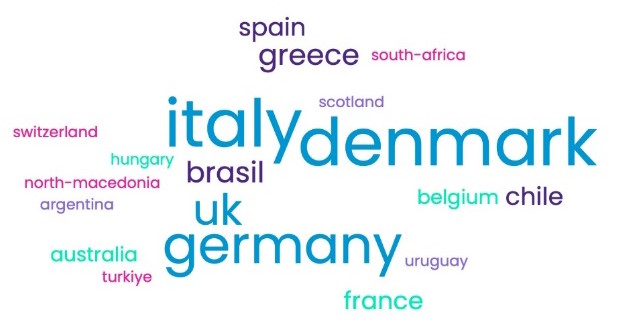 |
First of all, we would like to thank you for the warmest welcome of our Webinar Series. It was an incredible success with great talks from Haopeng Xiao and Lasse Lorentzen! We reached more than 120 attendees from 19 different countries. |
| Our next webinar will be on 7th March 2023 at 15:00 and we are happy to announce the following talk: | |
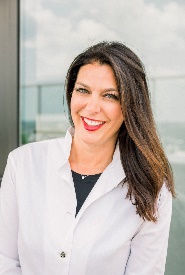 |
Louise Hecker, PhD Louise is an Associate Professor of Medicine at Emory and the Founder and chief scientific officer (CSO) of Fibronox, a biotech company developing highly selective Nox4 small molecule inhibitors for the treatment of fibrotic diseases. |
Mentoring program
Our mentoring programme has launched and the mentor-mentee pairs have begun building their relationship. If you are interested to join, applications for the next round of the programme will begin in September 2023.
WHO is the ECR subcommittee? - a short introduction round (part I)
We have received many questions about the Early Career Researchers subcommittee of the Society for Free Radical Research Europe (SFRR-E) so we wanted to introduce ourselves. We are a group of 11 young scientists, members of the SFRR-E, at different stages of our careers interested in promoting and supporting Early Career Researchers in the redox field.
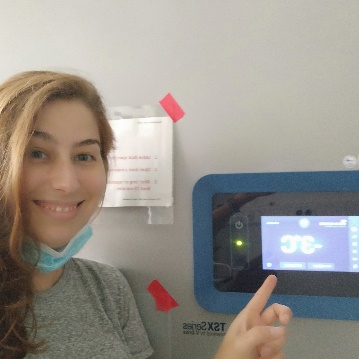 Carmen Veith is the chair of the ECR subcommittee and works as a Scientist at a Biotech company In Germany focussing on finding new treatments for fibrotic diseases.
Carmen Veith is the chair of the ECR subcommittee and works as a Scientist at a Biotech company In Germany focussing on finding new treatments for fibrotic diseases.
I studied Biomedical Sciences at Maastricht University in the Netherlands. During my Master's, I decided to leave the Netherlands for a research stay and joined the van der Vliet lab at the University of Vermont in the USA where I started working on NADPH Oxidases. It was not love at first sight but the longer I worked on NOXes the more I was interested to find out more. Eventually, I decided to continue working on NOXes and their role in fibrotic signaling for my PhD project. During my Postdoc at the German Cancer Research Center in Heidelberg, I wanted to deepen my knowledge about redox signaling to get insights into oxidant dependent activation of receptor tyrosine kinase and their role in NOX redox signaling complexes. Afterwards, I transitioned into Biotech as I became very interested in drug discovery and in bringing novel ideas to the clinic to help patients with rare diseases.
What annoys you in the lab? Easy one: when the ice is very far away, messy lab benches and waiting around for samples to thaw (I am super impatient)
What do you like to do the most in the lab? Quiet lab days with lots of Western blotting and/or microscopy
What is your favourite thing to do for celebrating a successful experiment? Usually, there is dancing around the lab and Taylor Swift involved
Which was your first spot in your lab coat? Most probably an edding stain because I sometimes (or often) forget to put the top back on
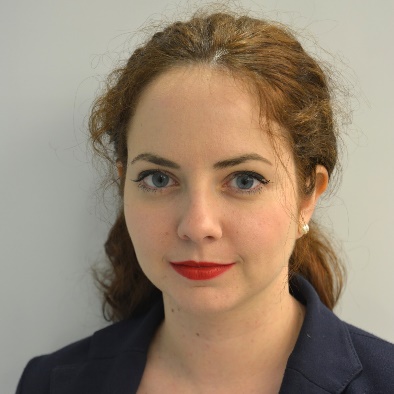 Paraskevi (Pari) Kritsiligkou is the co-chair of the ECR subcommittee and a postdoc in the lab of Tobias Dick at the German Cancer Research Center (DKFZ), Heidelberg, Germany. Her research interests are focused on H2O2-mediated signalling, redox regulation and organelle homeostasis.
Paraskevi (Pari) Kritsiligkou is the co-chair of the ECR subcommittee and a postdoc in the lab of Tobias Dick at the German Cancer Research Center (DKFZ), Heidelberg, Germany. Her research interests are focused on H2O2-mediated signalling, redox regulation and organelle homeostasis.
I studied Biology at the University of Crete and for my undergraduate thesis I worked on the disulfide bond formation system in mitochondria. It was love at first sight. I then left the sunshine behind and moved to the UK to study for an MSc in Biochemistry at the University of Oxford, Merton College. There, I worked on disulfide bond formation but this time in the bacterial periplasm. I loved the rain so much, so I moved to Manchester on the Wellcome Trust funded PhD “The Dynamics of Cellular Pathways”. During my PhD, I explored several topics including redox regulation and signalling, stress responses, and organelle and protein homeostasis. In 2018, it was time for my Brexodus, so for my postdoc I moved to The Länd of opportunity to study Thiology. The last five years have been filled with laughter and tears and loads of fascinating discoveries.
What annoys you in the lab? People :)
What do you like to do the most in the lab? Talk to people about science, discussing ideas and concepts.
What is your favourite thing to do for celebrating a successful experiment? Usually there is a loud cheer first, followed by a hug to whoever is nearby, followed by beer and/or prosecco later in the evening if it was a super crucial experiment.
Which was your first spot in your lab coat? No idea, but I would imagine some yeast cells or a marker pen stain.
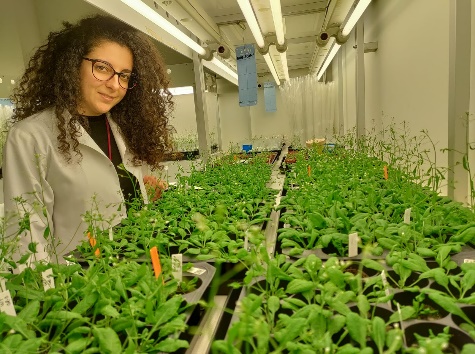 Carmen Castell Capitan is a Postdoc working at VIB-UGent Center for Plant Systems Biology where I work with Arabidopsis thaliana in oxidative stress signalling.
Carmen Castell Capitan is a Postdoc working at VIB-UGent Center for Plant Systems Biology where I work with Arabidopsis thaliana in oxidative stress signalling.
I obtained my Biology Degree at the University of Seville, where I joined the lab of Dr. Navarro and Prof. Hervás at the Institute of Plant Biochemistry and Photosynthesis (CSIC-US). I liked the environment of the lab so much that I decided to stay. I applied to various national scholarships and I was able to conduct my Master´s degree in Molecular Genetics and Biotechnology and my PhD thesis at the University of Seville focusing on the improvement of productivity of the diatom Phaeodactylum tricornutum under stress conditions by using different biotechnological approaches. During my thesis I was able to work for three months in Paris, and it was there when I realised I wanted to work in a new place, I wanted to meet new people and new ways of working, of research. I love being in a constant learning mode, so I decided to swipe organisms and research fields, and I joined Prof. Van Breusegem´s group in Ghent as a postdoctoral researcher, where I work with Arabidopsis thaliana in oxidative stress signalling.
What annoys you in the lab? Dirtiness.
What do you like to do the most in the lab? Western blots.
What is your favourite thing to do for celebrating a successful experiment? Drinking beers.
Which was your first spot in your lab coat? Ponceau staining.
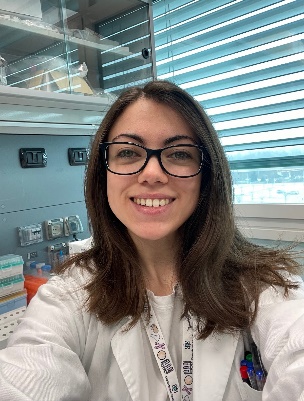 Vanesa Cepas López is a postdoc working at the Department of Oncology of the University of Turin, Italy and Candiolo Cancer Institute IRCCS. My research focuses on the redox regulation of stem cell plasticity.
Vanesa Cepas López is a postdoc working at the Department of Oncology of the University of Turin, Italy and Candiolo Cancer Institute IRCCS. My research focuses on the redox regulation of stem cell plasticity.
I studied Biology at the University of Oviedo, Spain. Since my first years I loved working in the lab and I decided to do an experimental undergraduate thesis studying new biomarkers for cervical cancer. It was such an enriching experience that I pursued a MSc and a PhD in Biomedicine and Molecular Oncology, studying hydrogen peroxide balance in stem cell fate in spermatogenesis. During my PhD I had the opportunity of working in different labs in Europe, among them I had the greatest luck to join Leticia Prates Roma’s lab for three months. This experience made me fall in love with redox biology and state-of-the-art methodologies to study redox signalling. After my PhD studies I was determined that I wanted to pursue a career in research in particular, cancer research. Thus, in 2020 I left my rainy and green North Spain and moved to Turin, the city by the Alps. I joined the University of Turin and Candiolo Cancer Institute IRCCS to study redox regulation of stem cell plasticity using patient-derived cancer organoids and most importantly, eat tons of pasta!!
What annoys you in the lab? People leaving the cell culture room dirty and full waste containers. Ugh!
What do you like to do the most in the lab? Doing microscopy experiments and thinking that maybe I am the first person in the world that has seen (you name it) before! Ain’t our job awesome?
What is your favourite thing to do for celebrating a successful experiment? I live in Italy, so every occasion is great for pizza!!
Which was your first spot in your lab coat? Scientist me would say Ponceau solution, but artist me would say that most probably was some marker pen stain.
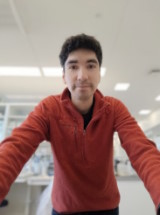 Eduardo Fuentes-Lemus is a Postdoc working at the Department of Biomedical Sciences, University of Copenhagen, Denmark. My research interests include investigating the physicochemical aspects that modulate protein modification and aggregation induced by oxidative insults.
Eduardo Fuentes-Lemus is a Postdoc working at the Department of Biomedical Sciences, University of Copenhagen, Denmark. My research interests include investigating the physicochemical aspects that modulate protein modification and aggregation induced by oxidative insults.
I studied Pharmaceutical sciences at the Pontifical Catholic University of Chile, however, my interest in basic and translational research was always present. This led me to decide to do a PhD in Chemistry. This journey allowed me to do research stays in different groups in Europe and South America increasing my background knowledge in different methodologies to determine and quantify oxidative modifications in model systems. I enjoy teaching young(er) researchers in the lab, drinking coffee and listening to jazz and classical music. Outside the lab, I love going for hikes with my wife, baking bread at home and reading philosophy.
What annoys you in the lab? When I am ready to start a new experiment and I realize I forgot to purchase a reagent... I feel like I have failed myself hahaha.
What do you like to do the most in the lab? Supporting and supervising young researchers with their experimental work.
What is your favourite thing to do for celebrating a successful experiment? I do not have any particular way of celebrating. Success and failure are common and both are part of laboratory life. I drink coffee anyway.
Which was your first spot in your lab coat? I do not remember, but probably rose Bengal.
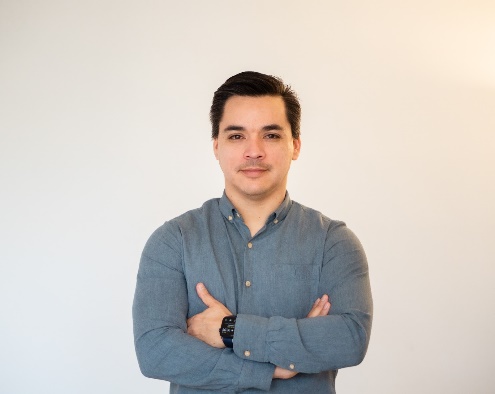 Carlos Henriquez Olguin Postdoc works in the August Krogh Section of Molecular Physiology at the University of Copenhagen, Denmark. My research focuses on molecular responses to cellular stress in skeletal muscle.
Carlos Henriquez Olguin Postdoc works in the August Krogh Section of Molecular Physiology at the University of Copenhagen, Denmark. My research focuses on molecular responses to cellular stress in skeletal muscle.
I hold a Master's Degree in Physiology from the University of Chile, where I focused on studying the impact of NOX2 on inflammatory signaling in dystrophic muscle cells. I pursued a double degree Ph.D. program, splitting my time between the Jaimovich E. Lab at the University of Chile and the Jensen TE. Lab at the University of Copenhagen. My research during this time centred on the contribution of subcellular ROS sources during exercise in both mouse and human skeletal muscle. I currently work at the University of Copenhagen, investigating the connection between compartmentalized redox signals and skeletal muscle metabolism. I have received several international awards, including the 13th Biochemistry of Exercise Young Investigator Award (IBEC), the 2022 Catherine Pasquier Award (SFRR-E), and the 2022 Future of Redox Award (SFRR-I).
What annoys you in the lab? Pencil/markers thieves.
What do you like to do the most in the lab? Microscopy - live imaging :)
What is your favourite thing to do for celebrating a successful experiment? Beer and pizza :)
Which was your first spot in your lab coat? Trizol :O
Do not miss our next newsletter for the second part of the introduction of the Early Career Researchers subcommittee!
More information about the ECR Subcommittee can be found on the SFRR-E website (https://www.sfrr-europe.org/index.php/sfrre/ecr-early-career-researcher), while regular updates can be found on Twitter (@SFRR_Europe) and Instagram (@sfrr_ecr). For any questions or suggestions, you might have, you can contact us via email:
Hope to see you in our second Webinar Series appointment,
The ECR subcommittee
Upcoming events:
1st FEBS Redox Medicine Workshop: from cellular signaling to systems physiology and therapeutic targets
22–25 May 2023
Portugal
Youth Travel Award deadline: 6 March 2023
SFRR-E Annual Meeting Redox Biology in Translation
5–9 June 2023
Vienna, Austria
Registration deadline: 31 March 2023
FASEB Science Research Conference
The Endoplasmic Reticulum (ER) Conference: Structure, Function and Disease
11–15 June 2023
Melbourne, Florida
Abstract submission deadline: 9 April 2023
EMBO Practical Course
Characterisation of post-translational modifications in cellular signalling
15–22 June 2023
Odense, Denmark
Abstract submission deadline: 6 March 2023
SfRBM - SFRRI 2023
SfRBM 2023 & SFRRI 21st Biennial Meeting
15–18 November 2023
Punta del Este, Uruguay
Interesting Redox Reads:
Effect of crowding, compartmentalization and nanodomains on protein modification and redox signaling – current state and future challenges
Fuentes-Lemus, E. and Davies, M.J. – FRBM
Interactions of reactive sulfur species with metalloproteins
Domán, A. et al – Redox Biology
Mitochondria regulate intracellular coenzyme Q transport and ferroptotic resistance via STARD7
Deswhal, S. et al – Nat Cell Bio
Distinct role of ERp57 and ERdj5 as a disulfide isomerase and reductase during ER protein folding
Robinson, P.J. et al – J Cell Science
Actin cytoskeleton vulnerability to disulfide stress mediates disulfidptosis.
Liu, X., et al. – Nat Cell Biol
A molecular device for the redox quality control of GroEL/ES substrates
Dupuy, E. et al – Cell
A sulfide-sensor and a sulfane sulfur-sensor collectively regulate sulfur-oxidation for feather degradation by Bacillus licheniformis
Tang, C. et al – Communications Biology
